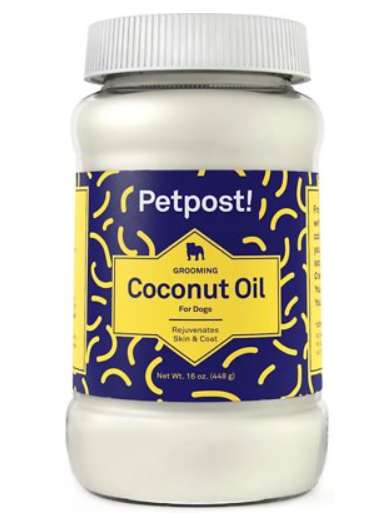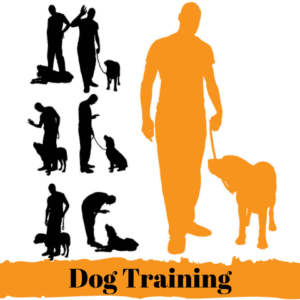Spring has arrived in different parts of the globe! And with the arrival of spring come seasonal allergies.
This time of the year is beautiful with beautiful flowers and budding trees, but it can be hard on dogs with allergies who love to play in the fresh grass.
If your dog is constantly scratching, it may be an allergic reaction to something in the environment. For example, you might notice that your dog scratches their skin/paws or rubs against furniture.
Their constant scratching can seriously damage your dog’s skin, hair, and skin with all the pain. However, there are many ways to prevent environmental allergies from developing and treat an already irritated dog.
Continue reading to learn about the most common spring allergies in dogs and how you can help your dog’s skin if it is itchy or uncomfortable.
Spring is Not a Good Time for Dogs With Allergies
Trees, Grass and Flower
An overactive immune system causes allergies to pollen in humans and dogs.
If your pup comes into contact with pollen, it signals to the dog’s body that it’s “under attack.” This triggers inflammation that can lead to rashes, bumps, and itching.
Dogs tend to be low to the ground. Their feet, bellies, and wandering noses often push through tall grasses or blooming flowers. It is very easy for dogs with sensitive skin to have a reaction.
Like humans, pollen is not a problem for all dogs. However, tractive.com suggests that some breeds are more sensitive to pollen allergy because of their genetic makeup.
- Pugs
- German Shepherds
- English Bulldogs
- Shar – Pei
- Labs and Golden Retrievers
- Setters
- Terriers
Mold
In spring, everything blossoms – even mold spores.
Although mold can be found a lot indoors, it can also grow outdoors on rocks, decks, and swing sets.
Itchy skin is one of the first signs of mold inhalation. Dogs love to sniff things, making it easy for them to inhale mold.
Mildew
Mildew is a type of mold, a particular kind of fungus.
It requires constant moisture to grow. You can find it on wood surfaces, plants, decaying leaves, and other organic materials.
Mildew can be inhaled in the same manner as mold and produces a similar reaction.
It is essential to be aware of what your dogs are doing outside.
How to Prevent and Relieve Uncomfortable Symptoms For Dogs with Allergies
Now you’re more familiar with the most common spring allergies. Let’s look at some ways you can help your dog stay safe.
These are some suggestions:
Contact a Holistic Veterinarian
Over the years, I’ve had to deal with many different cuts, rashes, bites, and stings. This is part of having dogs who love to run and play in the woods and bush.
And over the years, I’ve made numerous trips to holistic vets who have offered amazing alternative medicine treatments.
Alternative medicine treatments tend to be more gentle on dogs’ bodies and use the smallest concentrations of medication or other natural products.
I can say that almost every time I have consulted a holistic vet, the remedy has helped my dog.
My vet treated my dog’s problem, whether it be from severe rashes caused by certain plants or large welts caused by bee stings.
Not all alternative vets operate in the same way. Therefore, it is essential to get recommendations and find an alternative vet.
However, this is not to say that I don’t also use a traditional vet to treat my dogs. It’s just my preference to treat them holistically.
Limit Outdoor Time for Dogs
It is not ideal to restrict your dog’s time outside. However, it might be necessary if your dog is miserable.
Bring your dog outside if they are feeling unwell due to allergies.
Take them out for potty breaks and perhaps a short walk on a paved path each day until the mold and pollen spores subside.
You can also monitor which areas your dog reacts to.
So, for example, I know which grass affects my dogs and where it is. So, therefore, we stay away from certain grasses at certain times of the year.
Spend more time indoors playing fetch, tug-of-war, and hide-and-seek with your dog. This will keep your dog’s energy down and stimulate them not to become bored indoors.
Wipe your Dog’s Paws
Always wipe your dog’s feet after they come in. This will eliminate any mold spores or pollen that could be irritating their paws.
Warm water can be used to bathe your feet in a simple foot soak.
Some pet shops also sell dog allergy wipes, so you don’t have to clean your dog’s feet.
I recommend these Allergy Relief Wipes for Dogs
Pamper your dog with a Coconut Oil Bath
If your dog’s skin has already become irritated, a warm coconut oil bath may be a good option for your dog.
Coconut oil can be found in almost any grocery store. A large tub is affordable and lasts a lot!
The best part, its antifungal, antimicrobial, and soothing properties can help to soothe, heal and keep your pet’s hair and skin healthy.
Make a coconut oil bath by filling your tub with warm water. Then, add a few tablespoons of coconut oil to the water.
After your dog has been bathed in coconut oil-water, you can dry it off.
Coconut oil doesn’t need to be washed off your dog’s skin.
Stop Your Dog Itching and Scratching
Dogs with allergies don’t know the dangers of biting, scratching, and chewing on itchy, inflamed skin. To prevent your dog from causing injury, you may need to use devices such as a soft cone.
Although it may not be your dog’s favorite choice, stopping him from chewing and scratching can help prevent other serious problems down the line, such as infections or deep skin lesions.
This inflatable collar, which is gentle and affordable, will help most dogs with allergies.
I have had dogs with allergies in the past and I used and recommend the use of the Vet Worthy Inflatable Protective Dog Collar!
I have also used and recommend Vet’s Best Seasonal Allergy Soft Chew Dog Supplements + Vet’s Best Seasonal Allergy Relief
Get your dog an allergy shot
A local veterinarian can give you an allergy shot. This will reduce the severity of allergies in your dog.
Your vet will be able to determine the best treatment options for your dog if your puppy is struggling.
Your vet might be able to prescribe an allergy medication for your dog, similar to what is prescribed for humans.
No matter what the internet may say, DO NOT give your dog any human medication, such as Benadryl, or self-medicate at your home, unless your vet has cleared you to do so.
Although allergy symptoms can be frustrating for dogs, they are possible to manage.
Talk to your veterinarian if your pet is having trouble.

Petpost Skin & Coat Grooming Coconut Oil for Dogs
Keep your furry best friend looking and feeling his best with Petpost Skin & Coat Grooming Coconut Oil for Dogs.
Key Benefits
- A naturally powerful solution to itchy, flaky skin and reoccurring hot spots for dogs of all sizes, breeds, and life stages.
- Made with 100% organic extra virgin coconut oil to soothe irritated skin.
- The all-natural formula is free from gluten, hydrogenated fats, or any other artificial additives or harmful chemicals.
- Can be applied directly to trouble areas like hot spots to promote healthy skin and a shiny coat.
- Easy to use and safe for your sidekick!
Food Allergies
Your dog may also be suffering from a food allergy, so look for a correlation between a change in diet and allergy symptoms.
It is not that uncommon for dogs to have an allergic reaction to newly introduced foods. And sometimes an allergic reaction to food is only picked up by allergy testing.
So talk with your vet about testing your dog for a food allergy if your dog is showing signs of an allergic reaction to something that is not an environmental allergen.
In summary:
Because dogs with allergies cannot tell you directly what the cause of the scratching is you will need to embark on some detective work to determine if the cause is:
- A food allergy
- Flea allergy – or dust mites
- Seasonal such as pollen allergy
- A skin infection that is not allergy related
- Bacterial infection
I hope that this article about dogs with allergies was meaningful to you, if so keep an eye out for related articles coming soon, which include, ‘Home Remedies for Dog Allergies’ and ‘Dog Allergies Treatment.’
Related Articles:
Canine Distemper: Signs, Symptoms, and Treatment
Heartworms in Dogs – Symptoms and Treatment
What Is The Best Joint Supplement for Older Dogs?


